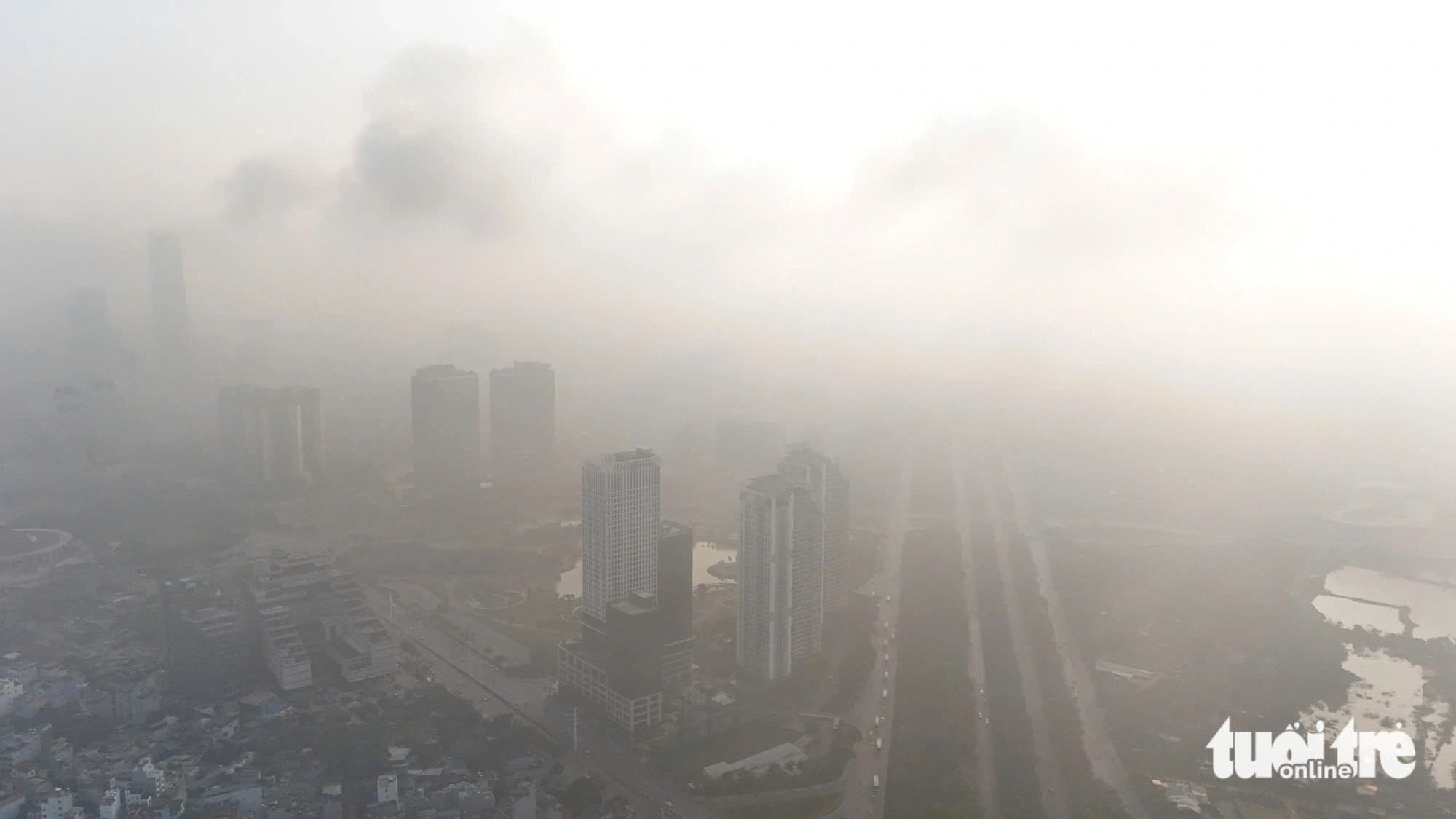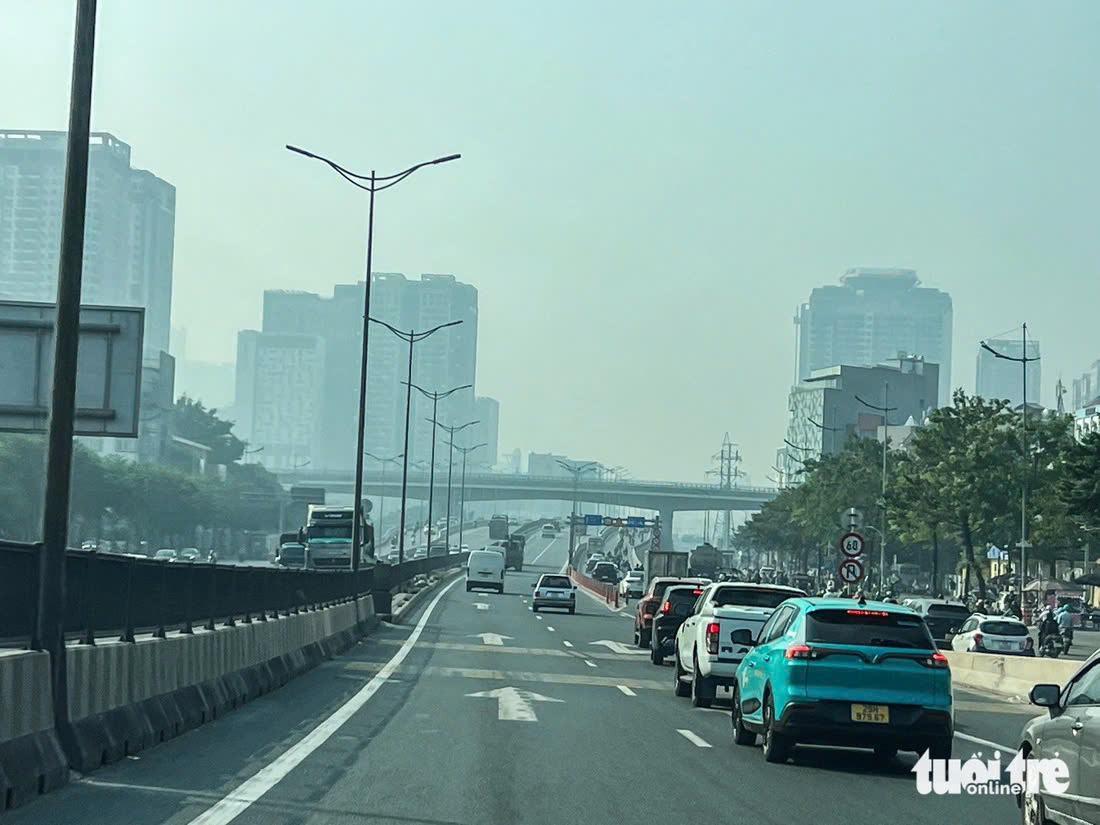Hanoi is calling for timely updates on air quality and encouraging the use of public transport and the research of tax incentives for biofuel trading to address severe air pollution.
These are part of the comprehensive measures directed by the Hanoi People’s Committee, in an official dispatch signed by deputy chairman Nguyen Trong Dong, to deal with the situation.
The action comes after a month of hazardous air quality levels posing significant risks to public health.
Particularly, the municipal People’s Committee has tasked the Department of Natural Resources and Environment with stabilizing the air quality monitoring system and enhancing the air monitoring network.
The department was required to update the air quality database and regularly share the data on the city’s online platforms, enabling residents to take proactive steps when pollution levels rise.
Hanoi plans to establish a robust system for monitoring, warning about, and forecasting air pollution to identify hotspots and enable timely interventions.
The city will conduct an inventory of pollution sources to implement targeted short-term and long-term solutions.
The committee emphasized closer oversight of industrial facilities, particularly those emitting significant dust and emissions, with violators facing strict penalties.
Grassroots authorities are also urged to intensify efforts to reduce pollution from key sources by maintaining regular water spraying on major roads and traffic routes.
|
|
| Haze engulfs a corner of Hanoi. Photo: Pham Tuan / Tuoi Tre |
The Hanoi Department of Transport must enforce measures to prevent dust and emissions from construction sites, build infrastructure for bicycle lanes, and promote public transport and low-emission vehicles.
Officials must also crack down on vehicles violating waste disposal and emissions regulations.
The municipal Department of Agriculture and Rural Development, along with the People’s Committee of every district, must focus on preventing the burning of waste and agricultural by-products, encouraging sustainable practices to reduce emissions.
Violations of environmental laws must be dealt with strictly, while agricultural by-products shall be recovered and reused.
Urban infrastructure projects must adopt stringent dust and emission control measures, and industrial facilities are required to meet environmental standards for emissions.
The municipal Department of Industry and Trade is charged with researching tax incentives to lower biofuel prices and accelerate the rollout of E10 biofuel as per Prime Minister’s Decision No. 53, issued on November 22, 2012.
Finally, authorities at all levels, including health and media agencies, shall ramp up public awareness campaigns, providing guidance for residents on health protection measures during periods of severe air pollution.
Like us on Facebook or follow us on X to get the latest news about Vietnam!




















































